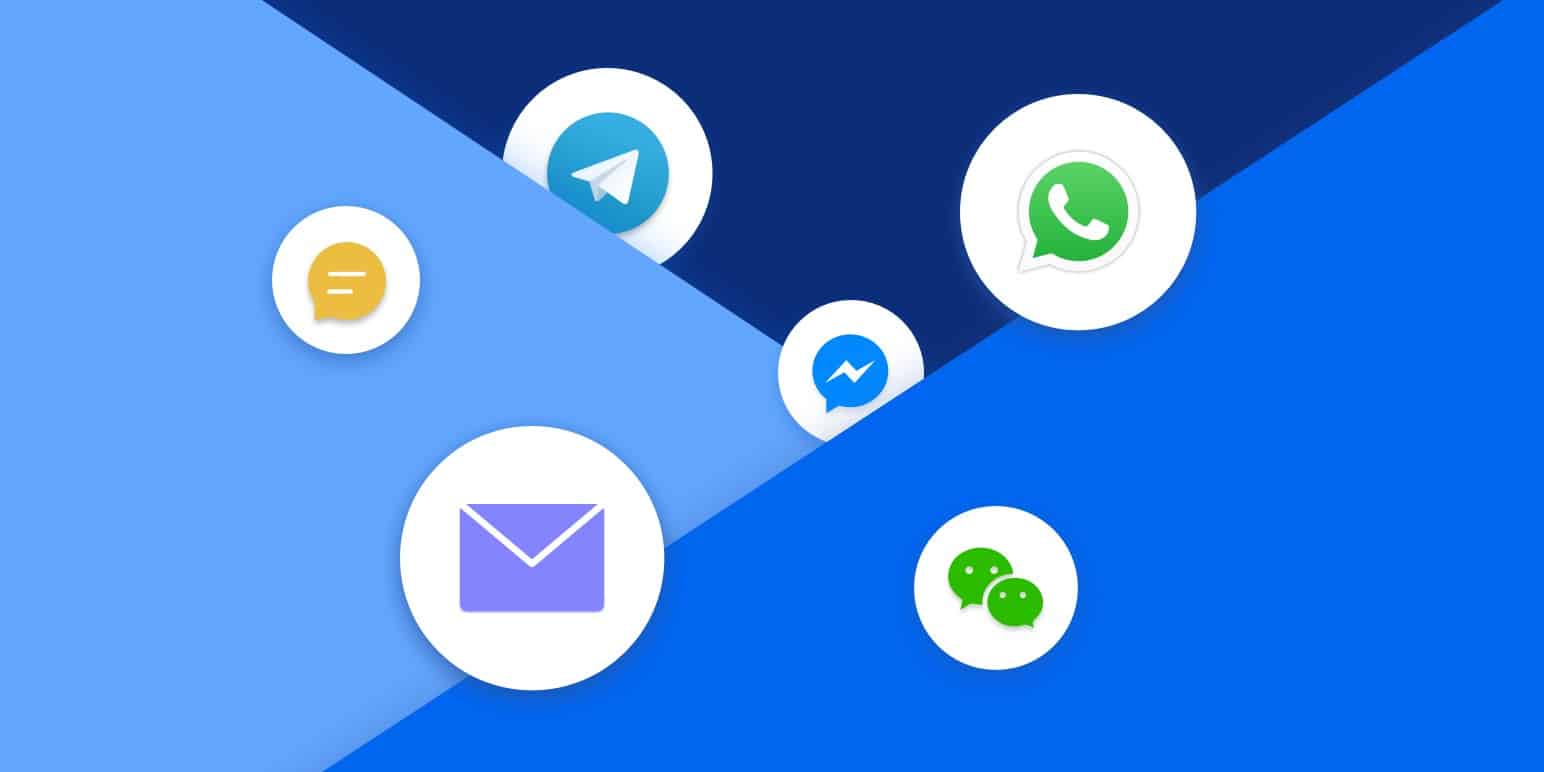Few things are as frustrating to a customer as having to repeat the details of a particular problem to every agent they talk to in a vain attempt to contact customer service. Even today, customers can get stuck in an endless loop, switching between agents and having to recap all their previous interactions before being able to solve their problem. While this may have been common practice a few years ago, customers nowadays expect a smoother experience and are happy to reciprocate their loyalty if they have a bad experience.
But when you consider the number of ways to contact a company’s customer service – by phone, email, social networks like Facebook Messenger and WhatsApp, support tickets and chats – agents need a point of contact, in order to have a complete history of each customer. This is what the omnichannel service center software does.
Omnichannel is a multichannel approach that brings together data collected from multiple sources to provide a single overview for each customer. This allows agents to provide a seamless user experience and build better relationships. Live chat, phone, email, social network, WhatsApp, Messenger, ticket sor any other support channel are interconnected in an omnichannel support software. When a customer comes into contact with the company, regardless of the channel used, the whole experience is consistent, avoiding the same customers having to repeat their request.

Simply put, any company offering support through more than one channel can claim to have multi-channel support. Each of these touch-points would be considered a separate interaction, and different agents could speak to the same customer regardless of the context of conversations they had on other channels.
On the other hand, omnichannel support adds all these different conversations up so that when an agent interacts with a customer, they have the full context of previous interactions with that particular customer and can focus on solving the problem regardless of the channel.
Basically, a good example of a multi-channel service center is Samsung. Support is provided by phone, email, social media, etc. Differently though, each channel is separate and the story and context are not shared across the different channels. Hence, each channel is managed by different groups of agents.

Let’s now turn to Oasis, a UK-based fashion retailer that is a good example of an omnichannel service center. To provide a convenient shopping experience for customers, the platform has also integrated physical stores, a mobile site and e-commerce sites. Their customer service is top notch. If the product you want is out of stock, the staff can order it online and you can also receive it at home.

1) Unified communication across all channels
Smartphones are now an essential part of human life and messaging is the preferred mode of communication. Millennials spend nearly 6 hours a day on their phones and surf the different channels to use chat, social media or mobile devices for their support options.
Furthermore, time is a very important factor when it comes to digital media. The average waiting time for a customer is only 2 minutes. What’s more, customer frustration will continue to escalate as the issue begins to shift between agents and channels, thus also having to explain the same problem over and over again. Omnichannel support solves all this by optimizing customer interaction through a unified collaboration.
2) Integrate and collaborate with modern tools
As new technologies appear on the market, omnichannel software allows you to expand your support by integrating these new channels into your existing system. This allows you to manage all customer and channel data from a single interface. Furthermore, this will also help your business stay up to date with emerging market trends and technologies.
3) Increase in sales and profitability
The separate management of the various communication channels involves the omission or loss of information. Additionally, managing multiple support channels simultaneously will tend to frustrate agents. Having an omnichannel support system will help them navigate between different channels more easily without having to switch tabs, providing better service and saving on maintenance costs of different software and third party companies.
4) Improve your agents’ productivity
Customers are already frustrated when they turn to a support agent. Unfortunately, agents who have to deal with customer issues across multiple channels are often overwhelmed and can only become even more frustrated. But having an omnichannel support software will allow them to access all relevant customer data from a single interface. With the information saved in the omnichannel software, agents will be able to have a history of requests made in the past by that customer in advance. This will reduce the stress of the agents and allow them to provide a better customer service experience.
5) Consolidated data to improve reporting
The Omnichannel contact software provides comprehensive data to analyze team performance, so you no longer need to analyze each channel separately. You will also be able to use your customer data, offer moments of wonder to your customers and even receive regular reports directly to your inbox.
Customer service is now a top priority and channels are constantly evolving to meet customer expectations. For this reason, it is imperative that companies prepare their support strategy for the future, by enabling omnichannel support as soon as possible.

Frequent Questions
What is omnichannel?
Omnichannel is a multichannel approach that brings together data collected from multiple sources to provide a single overview for each customer. This allows agents to provide a seamless user experience and build better relationships. Live chat, phone, email, social network, WhatsApp, Messenger, tickets, or any other support channel are interconnected in an omnichannel support software. When a customer comes into contact with the company, regardless of the channel used, the whole experience is consistent, avoiding the same customers having to repeat their request.
How is the omnichannel service center different from the multichannel one?
Simply put, any company offering support through more than one channel can claim to have multi-channel support. Each of these touch-points would be considered a separate interaction, and different agents could speak to the same customer regardless of the context of conversations they had on other channels.
On the other hand, omnichannel support adds all these different conversations up so that when an agent interacts with a customer, they have the full context of previous interactions with that particular customer and can focus on solving the problem regardless of the channel.
About the author: Hello! I am Alan and I am the marketing manager at Callbell, the first communication platform designed to help sales and support teams to collaborate and communicate with customers through direct messaging applications such as WhatsApp, Messenger, Telegram and Instagram Direct




